Maja Komorowska
Nascimento : 1937-12-23, Warsaw, Poland

Kaytek, an unusually stubborn twelve-year-old, is brought up by his grandma and dad. One day, the troublemaker discovers that he’s got supernatural powers, which completely take over his life.
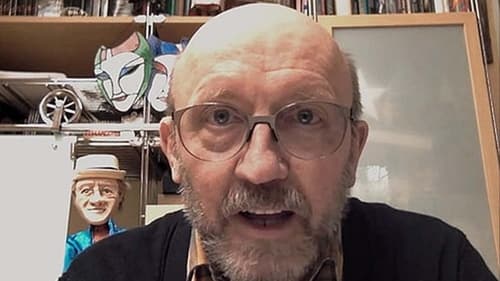
Self
The film was inspired by one of the most important documentaries shot by Krzysztof Kieślowski, Talking Heads (1980). The director asked his interlocutors seemingly simple questions, such as “Who are you?” and “What do you want?”.

Madame Lisiecka
A story, warm and full of humor, about Maszenka, an 11-year-old girl from an orphanage in the Bieszczady Mountains who loves ballet. The first stage on her road to fulfilling her dream is the entrance exam to the ballet school in Gdansk. To make it there in time, she escapes from the orphanage, taking newly hired educator Kordula with her. They travel all the way across Poland, hiding from the police and meeting people who help them in need.

Bella
In this mixture of fiction and documentary Krzysztof Zanussi invites a number of Poland’s great actors—Maja Komorowowska, Daniel Olbrychski, and Jan Nowicki—to "revisit" characters they played in the director's earlier works.
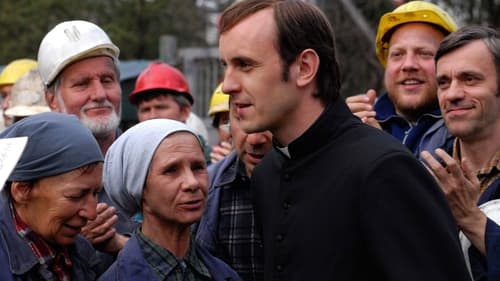
Maja
Story of life of Father Jerzy Popieluszko, the priest called "The Solidarity Chaplain", murdered by communist secret police.
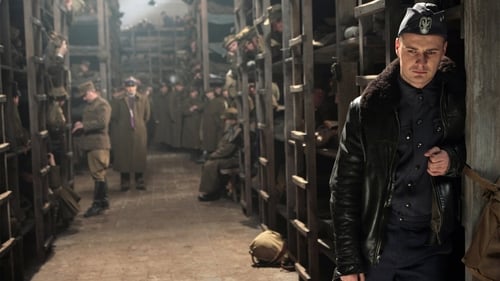
Professor's Wife
O polonês Andrzej Wajda descreve o famoso e triste massacre de Katyn. Meses depois da invasão nazista na Polônia, em 1939, aproximadamente 22 mil prisioneiros de guerra poloneses são mortos pela polícia secreta soviética nas florestas da cidade de Katyn.
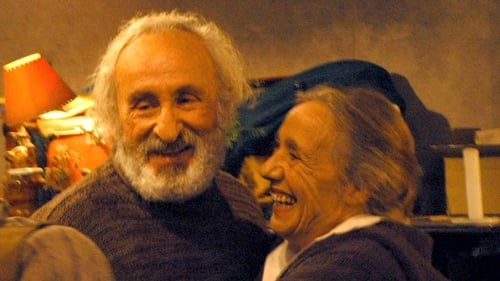
Szendrőy Hanna
After her husband's death, Hanna Szendroy, the former primadonna, portrayed by Maya Komorowska is caught in the claws of the real estate mafia. She looses her lavish home and ends up homeless at the Keleti train station. When she returns to her house, now full of homeless people moved in by the real estate mafia, an unexpected relationship brings hope into her life again.

Róża
Rose, an older woman living in Paris was born in Poland as a daughter of an aristocratic family. Her family house is now an impoverished home for the elderly.
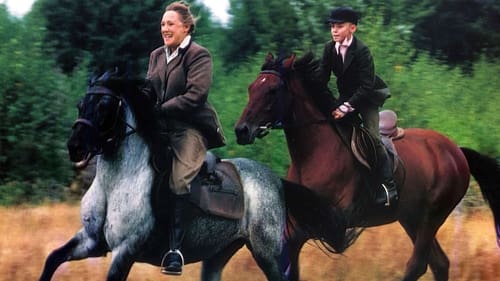
Aunt Ida Dobrowolska
Zanussi has described the film as his most autobiographical work. A young boy in post-World War II, Communist-dominated Poland, whose father's decision to remain in Britain after the war has made his family politically-suspect with the local Party authorities, is sent by his mother to stay with an "aunt" (in reality an old family friend) in Warsaw.

Ewelina Lechicka
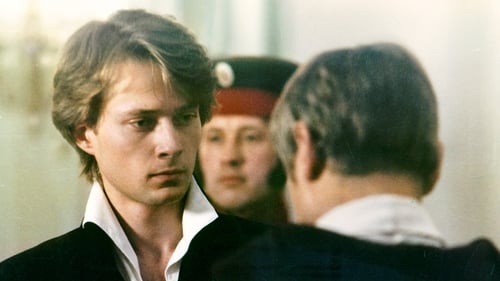
In the eve of the Day of the Dead, among mysterious old rituals of the Vilnius region, ghosts of the past and present start to appear.

Zofia
Difficulty of human relations in a 3-cornered tale: a neurotic woman, idealistic young man and his mother. Tomek is a clean-cut, high-minded geography student. He lives with his mother Zofia, a sensitive, practicing Catholic, like her son. When he meets Julia, a depressed woman older than he, he first tries to comfort her, then invites her to stay with him and his mother. Tomek makes a trip to West Berlin to visit his well-off father. He refuses to take money from him and looks for work as a house painter. Julia ends up in a rest home for treatment, while Tomek is trying to make their relationship work.
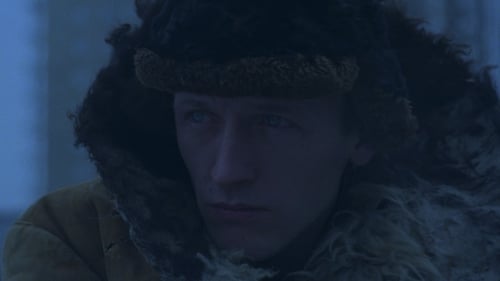
Irena, siostra Krzysztofa
Krzysztof, a semantics professor and computer hobbyist, is raising his young son, Paweł, to look to science for answers, while Irena, Paweł’s aunt, lives a life rooted in faith. Over the course of one day, both adults are forced to question their belief systems.

Nun Klementyna
An Uruguayan diplomat brings his new wife with him on a business trip to Poland in the summer immediately preceding the outbreak of World War II.

Anna Schubert
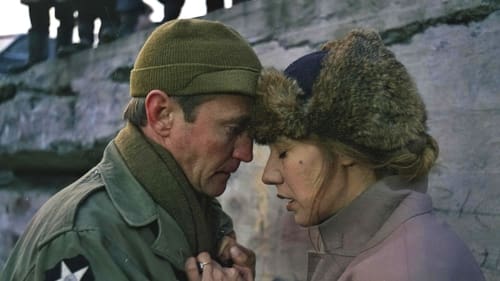
Emilia
Shortly after World War II an American soldier (Norman) and a Polish refugee (Emilia) fall in love. Eventually he will return to the U.S. and both expect that she will soon follow him with her mother. Emilia's mother is sick, but will recover with the right medicine. But the mother, and not Emilia, knows that there will only be one ticket...

pani Grossmanowa, matka Dawida
A story of a middle-aged Jew methodically preparing himself to be shipped off to a concentration camp. The main character, Jacob Rosenberg, is a former industrial counselor, who is forced to work as a street cleaner. He knows what the fate is holding for him in the future, nevertheless he takes it with and implacable calmness.
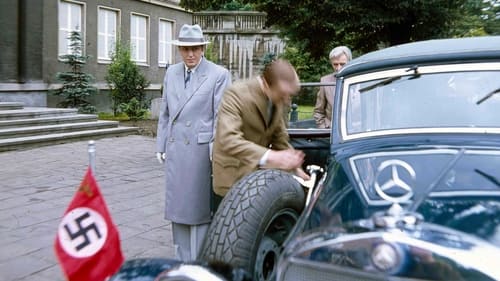
matka Michała i Andrzeja
Two brothers of German heritage live in the Polish town of Poznan. Michal is the sensitive brother who likes literature, Andrzej is the daredevil with no intellectual bent, and between the two of them, they steal the German consul's Daimler-Benz limousine, on a lark. When they are caught by the police, the German consul unexpectedly forgives them their prank -- but in the meantime, the episode has put the brothers in touch with a Nazi underground group who want to prepare the way for the pending German invasion (set to occur within a matter of days). Andrej helps the group kill the German consul and then they blame the death on the Poles -- giving the Germans an excuse to cross the border. Not only the consul, but "artistic" types like Michal are also killed for the same reasons. After these murders, Michal realizes his brother is no better than the group he joined, and decides to set his own course in the face of the rising threat of invasion.

Marta

Nun
This heroic story follows the life of Karol Wojtyla, a Polish Roman catholic who ascends the throne of St. Peter as Pope John Paul II. As a young boy, Karol is a bright and talented student. Archbishop Sapieha recognizes the very special, moving qualities Karol possesses and encourages him to consider the priesthood. Although determined to study Polish literature, Karol turns to the church; he is ordained and studies in Italy, France, and Belgium. Torn by fear and repression in post-Stalin Eastern Europe, Karol becomes a poisonous thorn in the communists' side. His deer reverence and commitment return him to Poland as Pope John Paul II.
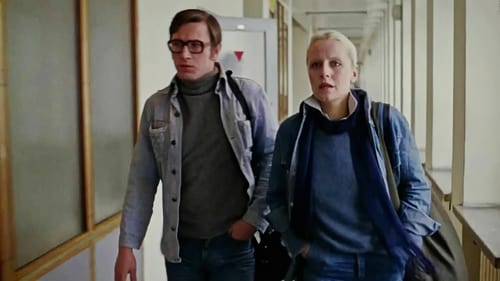
aktorka recytująca wiersz Miłosza
Um trabalhador comum que se torna um “homem de ferro” forjado pela experiência, um filho que faz as pazes com seu pai, um casal que se apaixona, um repórter buscando coragem para mudar sua vida e uma nação inteira passando por duras mudanças. Esses são os ingredientes deste filme de Andrzej Wajda, continuação de o “Homem de Mármore” (1977). Na Varsóvia de 1980, o Partido Comunista envia Winkel (Marian Opanian), um repórter alcoólatra e frágil, até o distrito de Gdansk, para descobrir os podres que estariam por trás das greves nos portos. Um dos focos principais dessa investigação seria o jovem Maciej Tomczyk (Jerzy Radziwiłowicz), um articulado trabalhador cujo pai foi morto durante os protestos de Dezembro de 1970. Fingindo interesse e simpatia, Winkel entrevista diversas pessoas que conhecem Tomczyk, incluindo sua esposa, a presidiária Agnieszka (Krystyna Janda). Ao fazer isso, Winkel se depara com uma realidade diferente da que ele imaginava.

Dorota, żona Adama
Bearing traces of the old Anton Chekhov play The Wedding, The Contract is set during an "arranged" ceremony. The bride and groom barely know each other, but this matters not at all to their tradition-bound families. At the last minute, the bride balks. Only slightly nonplused, the groom's father, a status-seeking doctor, decides to go ahead with the expensive reception anyway. Polish director Krzysz Zanussi uses this scenario to stick it to capitalist corruption, and to society's destruction of the individual spirit. Leslie Caron, the one recognizable member of the cast, is outstanding as a wealthy, over-the-hill ballerina who happens to be a kleptomaniac.

Elzbieta
Friedrich is a wealthy, handsome German soldier fighting in World War II. His unit is stationed in Poland and occupies the estate of Countess Elzbieta. Forced to remain in her presence, Friedrich begins to pursue Elzbieta out of boredom.
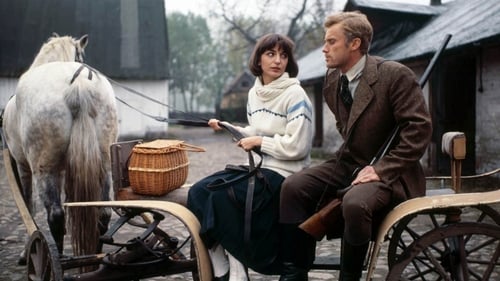
Jola
Set in the late '20s. A thirtyish young man, who heads a small factory, faints at the funeral of a close friend. He decides to go home to his aunt and uncle for a while, but gets involved with a family of five women who had been in love with him at one time though he had apparently loved only one, who, unknown to him, has died since his departure. The women are mainly disillusioned with life or estranged from husbands while the youngest has a crush on him.
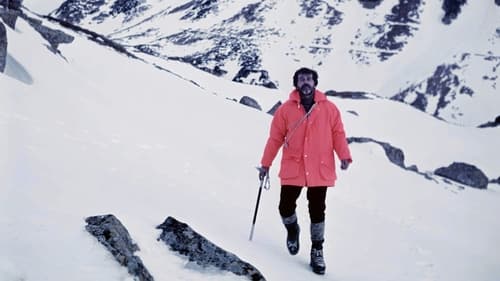
Teresa
In what appears to be an inexplicable incident, a man drives up to a resort hotel in midwinter, throws away his car keys, enters, and proceeds to agitate everyone he meets with his urgency -- a message he is somehow unable to communicate. Then he leaves, disappearing in the snow. Later, the people he appeared to have upset have gathered to search for him and find him frostbitten, but alive. Visiting him at the sanatorium to which he has been taken, they gradually discover what was really happening.
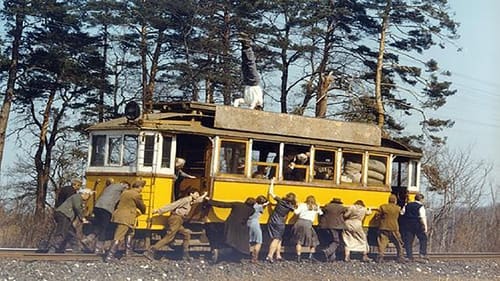
Színeket Tudó Lány
"Budapest Tales" is about a group of people (consisting of Szabo regular Andras Balint along with Ildiko Bansagi and Karoly Kovacs) who find a broken down tram while trying to go to the city. The people band together and try to get the tram back on the train tracks and head towards the city. Along this journey the passengers encounter many people who join them on the tram. What started out as only a handful of people has now turned into a small village. As the people travel on to the city each person takes on certain roles and through the course of time these roles will change. Some people fall in love, others out of love, and a few even die. But life goes on. The people keep the tram going hoping to reach Budapest.

Marta
The main character is a bookkeeper, 40, who lives a quiet, uninteresting life with her husband and son of school age. She realizes that soon she won't be needed much at home as the boy grows up and the relationship with her husband crumbles. It's only when an embezzlement is discovered at the office and she stands up to her management, that she realizes life has more to offer. She meets a well-off former classmate, married to an American. Then she meets Jacek and starts contemplating possibilities of a new start. She discovers love for the first time, but turns to old ways rather than to break loose.

Ruth
A wealthy German family is divided by the immorality of Nazi Germany, circa 1944. Former professional colleague, Joachim Peters, escapes from a Nazi concentration camp, and seeks refuge with his friends, the Sonnenbruchs. Torn between their duty as German citizens, and their greater humanitarian sensibilities, the family is divided in how to deal with Joachim's presence.

Abbess
Young seminary student Franziskus (Benjamin Besson) has been ceremonially ordained. He wants to escape the harshness and injustice of the world and devote himself to the service of God in the quiet seclusion of a monastery. He is also hoping to forget the beautiful lady Aurelie (Jaroslava Schallerová), whose life he saved in a flooded brook and with whom he spent an amorous night. He knows that her father would never allow her to marry him. But the devil dressed in a monk's habit and under the name Viktorin (Andrzej Kopiczynski) intervenes in Franziskus's destiny and attempts to lead him astray. To do so he first uses the diabolical elixirs kept at the monastery as a rare relic. When the young monk gets expelled from the monastery, Viktorin prepares another trap with the help of Aurelie's stepmother Euphemie (Milena Dvorská).
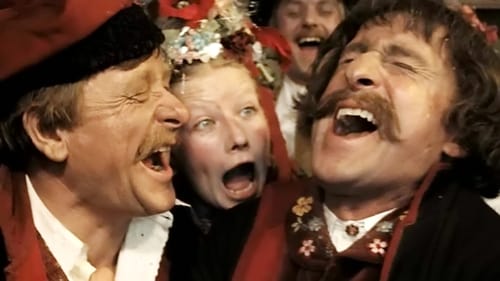
Rachela
Set at the turn of the century, the story concerns a Polish poet living in Cracow who has decided to marry a peasant girl. The wedding is attended by a heterogenous group of people from all strata of Polish society, who dance, get drunk and lament Poland's 100-year-long division under Russia, Prussia, and Austria. The bridegroom, a painter friend, and a journalist each in turn is confronted with spectres of Polish past. In the end a call to arms is called but turns out to be a hoax.
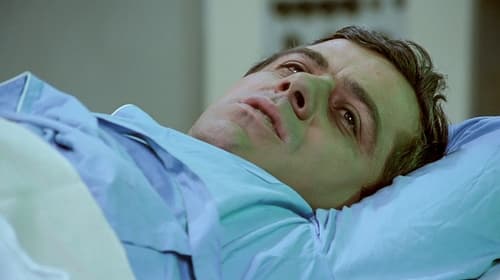
Marta Małecka
A biology professor, Adam, after several dizzy spells, enters a hospital for observation. He is a loner and a serious-minded man, who dislikes any display of emotions. He spends three months in the hospital while being tested. After observing patients and hospital routines around him from a distance, he learns that he will need a kidney transplant. Meanwhile his personal and professional life is falling apart: he refuses his wife's offer to donate the kidney for him; the scientific problem he was working on has been solved elsewhere. In the end Adam cracks under the prolonged pressure, waiting for the sound of an ambulance bringing a moribund patient whose kidney may be used for the transplant.
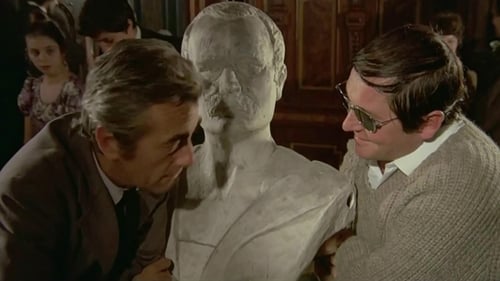
Musia
A middle-aged man sets out on a symbolic journey through past, present, and future to learn why an old friend committed suicide, and learns much about his own life along the way.
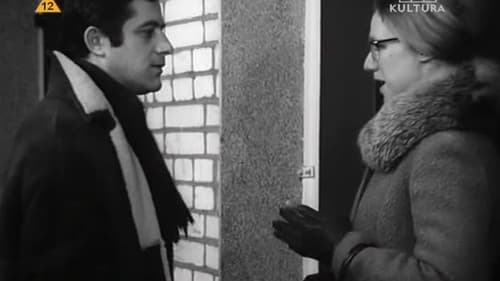
Anna
Jan is a young assistant professor in chemistry and a workaholic, Anna is an unsuccessful science writer who turns to Jan for advice and human compassion, but Jan, absorbed with his career, remains immune to Anna's clumsy efforts to pierce his defenses.
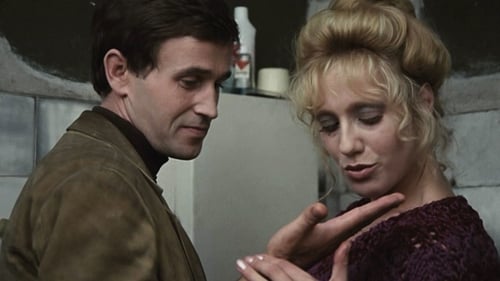
Bella Braun
This intense chamber drama centers on an ambitious young industrial designer who is summoned home to help his father and sister. Both the aristocratic family he fled in shame and scorn, and their dilapidated country estate, bathed in an oppressively nostalgic light, prove ultimately inescapable.

An alternately restrained and outrageous adaptation of Edgar Allen Poe’s “The System of Dr. Tarr and Professor Fether” that like OKNO ZABITE DESKAMI before it was updated to the modern world. It features a young man and a lady friend driving to an insane asylum whose overseers the woman knows. Weirdness is evident before they even reach the place, in the form of a ranting maniac in a tree. More crazies are found freely wandering the grounds of the asylum, they being participants in an apparently revolutionary new system instituted by the asylum’s director. But the director seems just as nutty in his own way as the patients...

Agnieszka
An old professor and his student go mountain climbing together.































